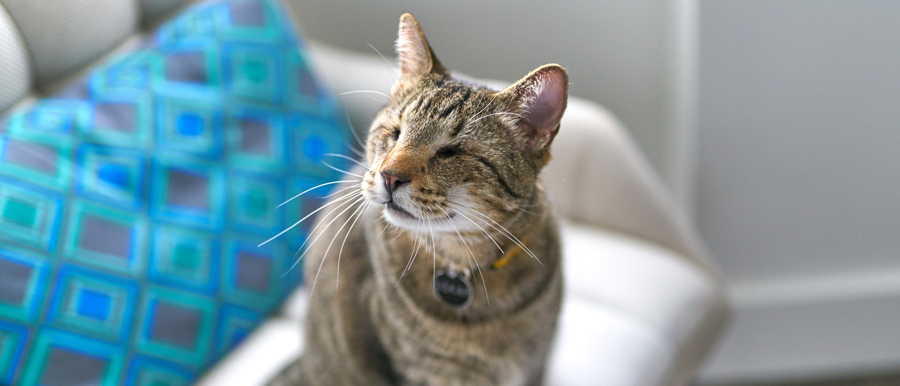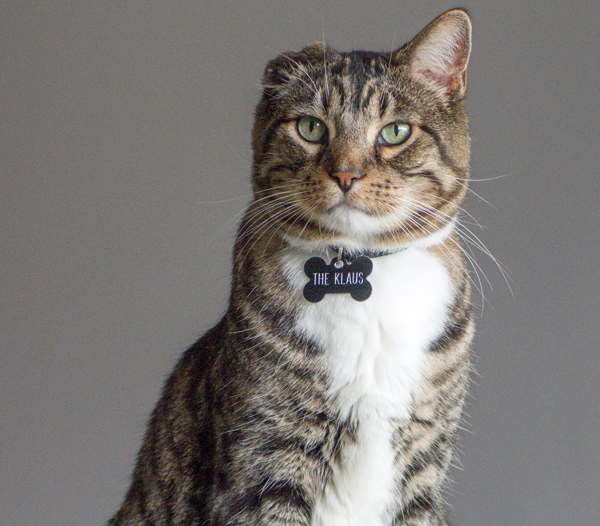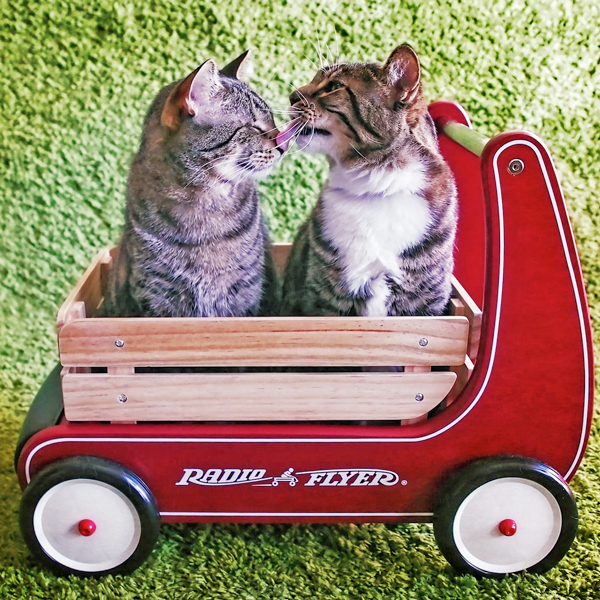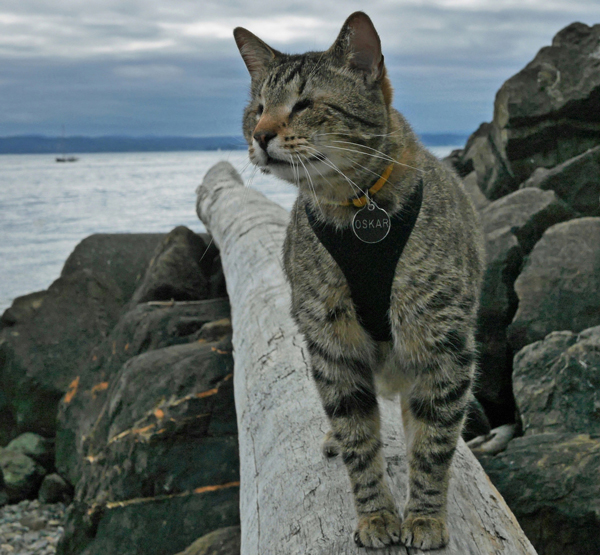Caring for a Pet with Special Needs

Mick Szydlowski is an author, marketing consultant and animal welfare advocate living in Seattle, Washington, with his wife, plus two young daughters and their “big brother,” Klaus the cat. Although Oskar is no longer around, Mick is patiently awaiting the arrival of his next special-needs shelter cat, which just happens to be another blind tabby!
What are some common special needs in pets?
If you’ve browsed social media over the past six or seven years, you have likely come across a number of accounts which feature pets with special needs. Animals with special needs are those that require additional daily care which is often quite specific, although not necessarily a lot of extra work in every case. The broad range of special needs may include varying degrees of blindness, deafness, loss of limbs or use of wheels for mobility, neurological issues, paralysis, behavioral problems, birth defects, plus a range of digestive disorders and chronic diseases that reduce organ function. The truth is that any pet that lives well into its senior years will likely develop a condition that would classify it as an animal with special needs.

How to care for a pet with special needs:
Frequently, the thought of caring for a pet with special needs discourages people from adopting the afflicted cat or dog, hence finding homes for these unique animals is a challenging task for shelters. However, an animal with special needs is not necessarily unhealthy or destined to live in a state of suffering. These assumptions come from unfounded biases and low expectations that society imposes on those with disabilities. With the right environment and daily attention and love, most of these pets can absolutely thrive. The key for those interested in adopting a “less than perfect” animal is to be armed with knowledge about the specific condition and a commitment to care which can include additional time and expenses. The rewards of caring for a special animal are immeasurable; you’ll be inspired daily and the bond of friendship will be something you’ll never forget!
Life with Oskar & Klaus
I am very lucky to have been blessed with two special needs cats in my life. The first cat, named Klaus, was adopted from a no-kill shelter in 2006. Klaus was already an adult cat when I brought him home after meeting numerous cats and kittens with every character trait from timid to wild. There was something special about this cat — the only adult — that was in a room full of kittens. His collapsed right ear, missing teeth and scars were a reminder of his previous life as a famished stray, but his elegant tabby coat, bright eyes and overall confidence were a clear sign that he would make a perfect spoiled indoor companion.
Klaus, however, came with digestive issues that required a fair amount of trial-and-error to control. He suffered from frequent bouts of colitis, which translated to recurrent diarrhea and responsive vomiting lasting a week or more. The key to eliminating the flareups ultimately came down to feeding him the right ratio of protein and carbs, portion size, mix of kibble and wet food and adding a daily probiotic supplement. With the right formula in place, Klaus’ digestive health is something that I don’t worry about and I certainly don’t miss cleaning up the messes that were part of the daily routine for many, many months!

The second cat, Oskar, was an outdoor farm kitten discovered in 2011. Oskar was only eight weeks old when I found him, and although I was not actively searching for a second cat, I immediately fell in love with him and brought him home to Klaus. Oskar was born completely blind with a condition called microphthalmia; he technically had eyes, but they were never fully developed and thus stayed tucked far behind his eyelids. Instead of navigating his world visually, Oskar mapped out his environment using his senses of hearing, smell and touch and by utilizing detailed special memory.
Initially, however, I had serious misconceptions about how well he’d do in an indoor space. Would Oskar run into the walls and furniture? Would I have to put down padding along the base of the walls to keep his head safe? Would he be able to find his food or the litter box? Oskar began to prove that my fears were misguided on the first day! As long as I didn’t rearrange the furniture and kept the clutter to a minimum there were zero issues. As a matter of fact, Oskar never made a mess anywhere outside of the litter box and he was the first cat at the food bowl when breakfast was served! Like many blind cats, he was adventurous and quite fearless, plus exceptionally skilled at climbing on top of the tallest object in the room, which Klaus often couldn’t do!

Should Your Next Pet be a Special Needs animal?
If you are prepared to offer the extra care and are ready to bring a unique special needs cat or dog into your home then talk to your local shelter about the animals that are in their custody that need that special someone. Shelters will often keep pets with special needs in their foster care program so you may not see them at the facility. Additionally, some shelters, such as Milo’s Sanctuary in California, specialize in caring for pets with special needs, so feel free to extend your search if you have no shelter locally. When you have finally brought home your special needs pet, share your experience on social media with others to inspire them to adopt the “less than perfect” cat or dog that ends up being absolutely extraordinary.





